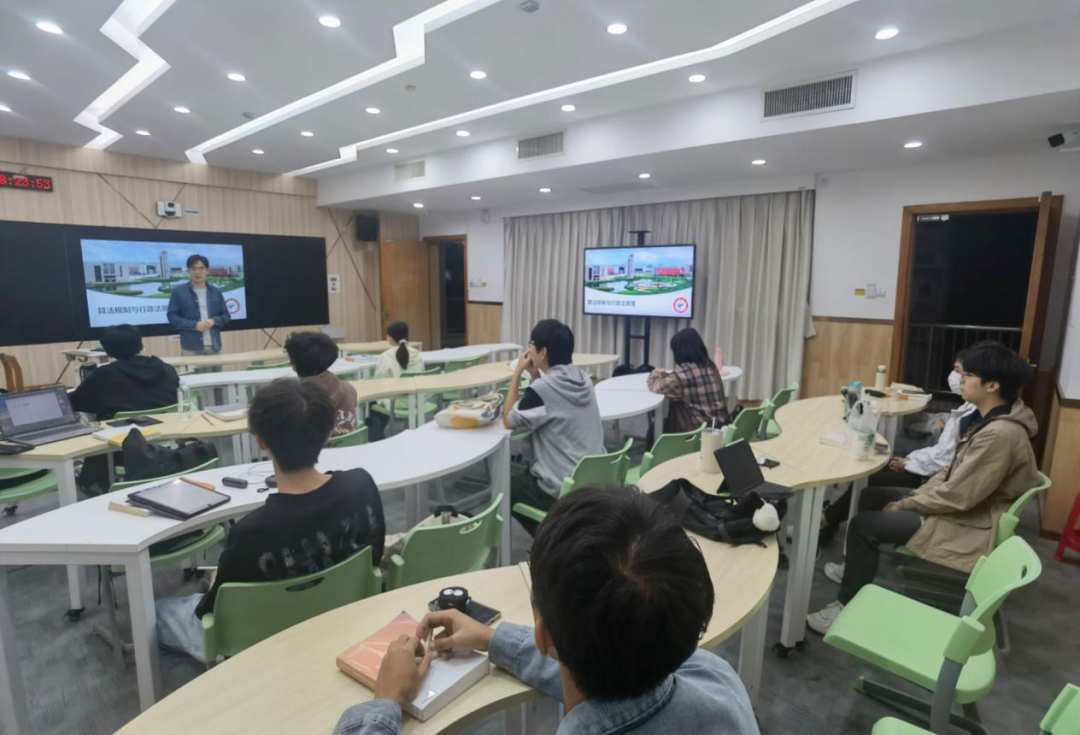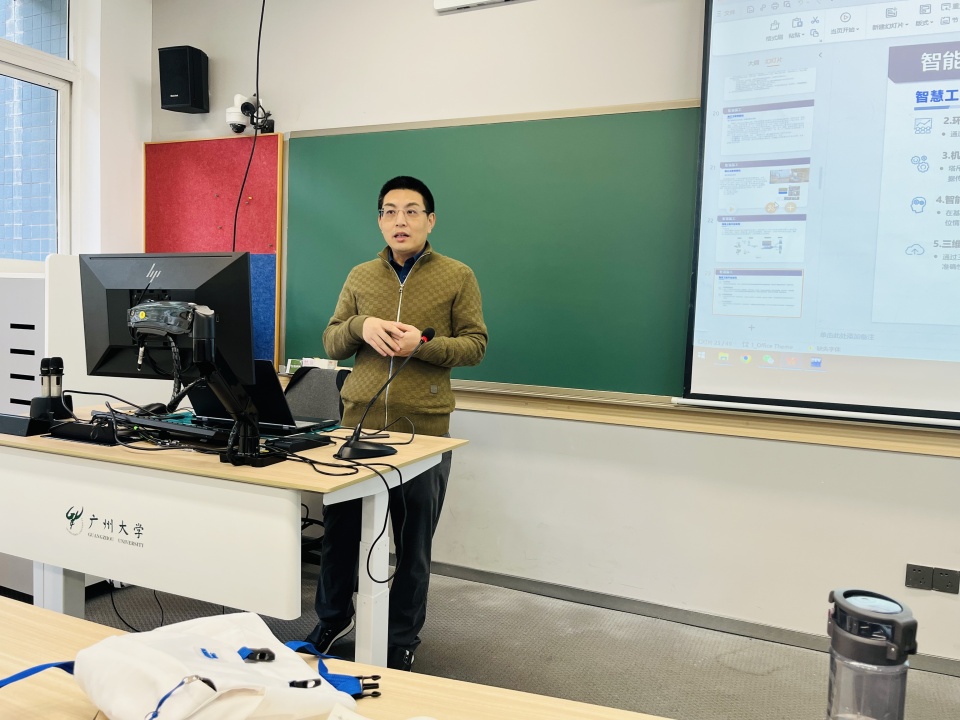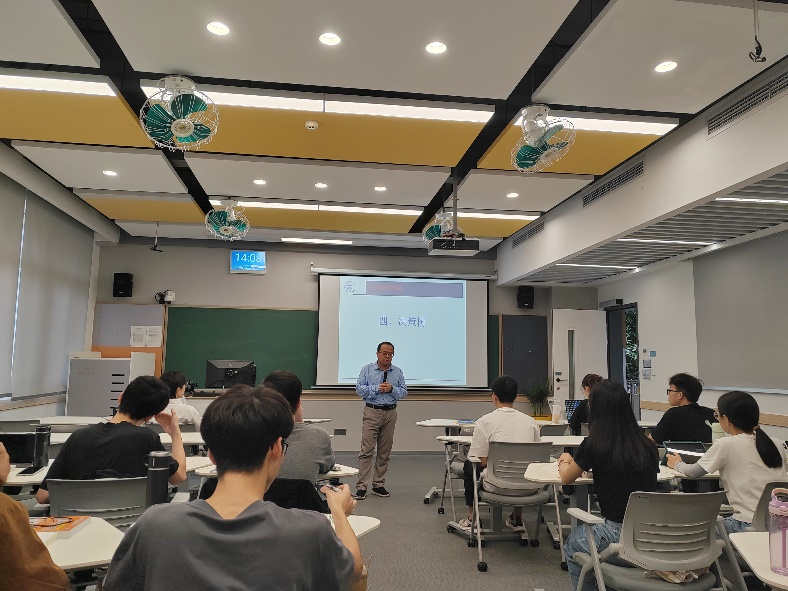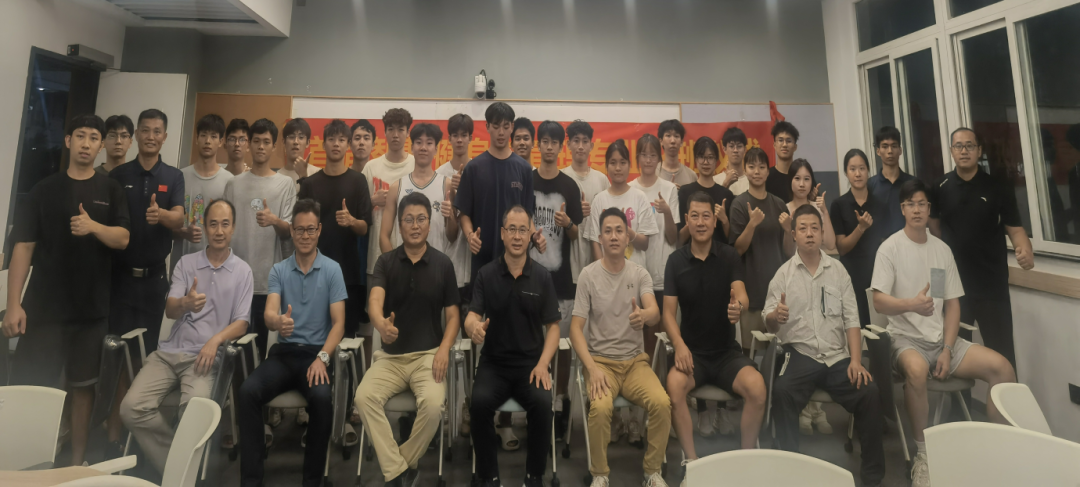 广州大学电子商务专业成立20周年校友座谈活动顺利举行11-28
广州大学电子商务专业成立20周年校友座谈活动顺利举行11-28 2023年广东高校少数民族学生教育管理服务工作专题培训班举办11-27
2023年广东高校少数民族学生教育管理服务工作专题培训班举办11-27 探索数字经济赋能中国式现代化发展道路———《中国家庭数字化发展报告(2022)》...11-27
探索数字经济赋能中国式现代化发展道路———《中国家庭数字化发展报告(2022)》...11-27 第六届羊城廉政智库建设论坛专家组一行考察荔湾区基层治理11-27
第六届羊城廉政智库建设论坛专家组一行考察荔湾区基层治理11-27 “数字技术驱动三不腐一体推进”圆桌学术论坛举行11-27
“数字技术驱动三不腐一体推进”圆桌学术论坛举行11-27 2023年广州大学第八届“农村电商创新发展高论坛暨电商人才培养研讨会”圆满举行11-27
2023年广州大学第八届“农村电商创新发展高论坛暨电商人才培养研讨会”圆满举行11-27 校领导带队赴英德开展“双百行动”工作调研11-27
校领导带队赴英德开展“双百行动”工作调研11-27 第六届羊城廉政智库建设论坛暨“数字技术驱动三不腐一体推进”研讨会举行11-27
第六届羊城廉政智库建设论坛暨“数字技术驱动三不腐一体推进”研讨会举行11-27 2023年广州大学体育节暨第十九届田径运动会闭幕11-25
2023年广州大学体育节暨第十九届田径运动会闭幕11-25 2023年广州大学体育节暨第十九届田径运动会开幕11-24
2023年广州大学体育节暨第十九届田径运动会开幕11-24 我校召开“冲一流、补短板、强特色”提升计划期中评价工作会议11-24
我校召开“冲一流、补短板、强特色”提升计划期中评价工作会议11-24 平远县“百县千镇万村高质量发展工程”干部能力提升培训班圆满结束11-24
平远县“百县千镇万村高质量发展工程”干部能力提升培训班圆满结束11-24 第四届“两岸语言文字调查研究与语文生活”研讨会成功举办11-24
第四届“两岸语言文字调查研究与语文生活”研讨会成功举办11-24 学校举办2023年离退休教职工集体祝寿活动11-24
学校举办2023年离退休教职工集体祝寿活动11-24
-

广州大学特色微专业“数字法学”顺利开班!
2023年9月,法学院“数字法学”微专业顺利开班。在开学第一课上,张玉洁老师向同学们介绍了“数字法学”微专业的学习内容和...
-

广州大学首批开设微专业“智能建造”顺利开班!
为主动适应新技术、新产业、新业态、新模式发展需求,促进学科专业间交叉融合和复合交叉型人才的培养,广州大学在2023年开展...
-

广州大学特色微专业“元宇宙”顺利开班!
课堂风采2023年9月9日 ,在理科南220管理学院举行了首批“元宇宙智能决策与人机交互”微专业开学第一课,胡勇军老师向同学们...
-

广州大学首批开设微专业“智慧健身与运营管理”顺利开班!
广州大学微专业教育是学校本科教学工作的重要组成部分,“智慧健身与运营管理”是学校首批微专业,实行跨学科的“校企政”合...
 必威手机官网电话客服电话
必威手机官网电话客服电话
2018必威体育下载
 必威手机官网电话客服电话
必威手机官网电话客服电话
2018必威体育下载
betway娱乐精选 COPYRIGHT©1999-2021粤ICP备 05008855号

 ENGLISH
ENGLISH











 数字广大
数字广大 个人邮箱
个人邮箱 图 书 馆
图 书 馆 招标信息
招标信息 热门站点
热门站点 校友之窗
校友之窗 领导信箱
领导信箱 必威体育手机版本
必威体育手机版本 进入新闻网
进入新闻网
 媒体广大
媒体广大













 学者风采
学者风采





 必威手机官网电话客服电话
必威手机官网电话客服电话





 通知公告
通知公告 广大专题
广大专题













